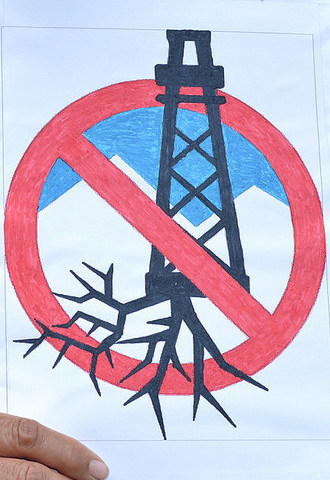Période de questions : fracturation hydraulique – le jeudi 26 mars 2015
Fracturation Hydraulique
M. Coon : Ma question, pour le premier ministre, est la suivante : La Nouvelle-Écosse, le Québec et l’État de New York ont tous entrepris une recherche plus approfondie sur la fracturation hydraulique dans l’extraction du gaz de schiste. Pour ce faire, ils ont disposé de ressources importantes, dont : David Wheeler, président de Cape Breton University ; le Bureau d’audiences publiques sur l’environnement, au Québec ; et plusieurs agences de l’État de New York. Le premier ministre peut-il indiquer à la Chambre quel sera le budget de la commission sur la fracturation hydraulique?
L’hon. M. Arseneault : Je remercie le député d’en face pour sa question. Il est certain que la commission dont nous avons fait l’annonce plus tôt cette semaine est composée de personnes jouissant d’une grande réputation ici, dans la province. Nous sommes très fiers d’y avoir nommé comme commissaires, l’ancien juge, Guy Richard, ainsi que John McLaughlin et Cheryl Robertson. Ils vont avoir un travail très important à faire sur une question très délicate, qui suscite beaucoup d’émotions et qui a pris beaucoup de notre temps durant les dernières années. Il était donc très important d’avoir à ce poste des personnes qui pouvaient faire le travail demandé relativement aux cinq conditions préalables imposées par le gouvernement.
Par contre, j’ai aussi déclaré publiquement que je n’allais pas préjuger le travail des commissaires. Ils ont carte blanche quant à la manière dont ils vont s’y prendre pour mobiliser le public et pour mener les études de recherche. Il reviendra aux commissaires de décider comment accomplir leur travail. J’ai entièrement confiance qu’ils vont pouvoir remettre au Cabinet, d’ici 12 mois, un rapport bien défini sur la fracturation hydraulique au Nouveau-Brunswick.
Mr. Coon: Transparency is essential in this process. As was done in the Nova Scotia inquiry, will the minister provide the citizens of this province and the members of this House with the letters of contract or mandate letters that he provided to the commission members, along with the terms of reference for the commission?
Hon. Mr. Arseneault: That is a very good question. Yes, I will commit to providing the terms of reference publicly and to the member of the Green Party. I will have no problem with doing that early next week.
Mr. Coon: Thank you. We certainly do not want a repeat of the LaPierre fiasco. In New York alone, the New York State Department of Health produced a 176-page report last December that is entitled A Public Health Review of High Volume Hydraulic Fracturing for Shale Gas Development. This report is leading to a ban in New York State, replacing the moratorium that was previously in place there. How is the commission going to acquire the expertise to examine the health, environmental, and social consequences of the exploitation of shale gas without adequate resources and adequate expertise on the panel?
Hon. Mr. Arseneault: It is quite funny that the member mentioned Louis LaPierre. When I look at the last Tory government and the way it checked for character references, I see that it pretty well missed the boat on that one.
I am very proud that our government did the due diligence to try to find the right people to deal with the issue, which is a very important issue for our province and for the way we move forward. To have somebody such as Guy Richard, who has had a tremendous career in the legal sector and who was a Chief Judge in our province . . . It shows that he is able to take the facts and get the proper information in order to present his findings.
At the same time, we have people like John McLaughlin, the former President of UNB, who is a very well-respected individual. As a former minister, I appointed Cheryl Robertson as Principal of the New Brunswick Community College. I have to point out that all three of these individuals are recipients of the Order of New Brunswick. I have the utmost faith in how they will conduct their work and their research and in how they will consult, either publicly or privately . . .
Mr. Speaker: Time, minister.
